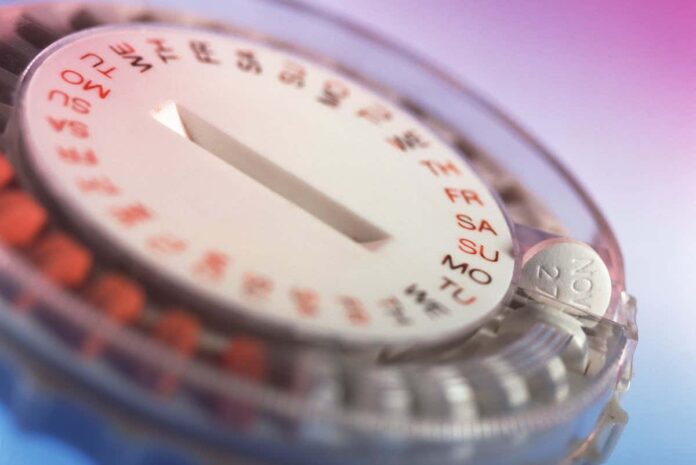In years past and even today’s world, men are still very hesitant to admit they are depressed or having other issues with their mental health.
In many instances, these problems are connected to hormone fluctuations.
Just as women deal with menopause, men can also deal with menopause-like symptoms that impact them mentally and emotionally.
Here are some facts you should remember as to just how your hormones can play a role in determining your mood.
Low Testosterone and Depression

When you have low testosterone, the chances of depression soar astronomically. In fact, studies have shown that men who suffer from low T are 400 percent more likely to be depressed than men who have normal testosterone levels.
This is due to not only the imbalance of your hormones but also the physical realities that follow, such as:
- Loss of muscle mass
- Weight gains
- Loss of hair
- Sexual problems
When your testosterone plummets and your depression worsens, sexual complications such as erectile dysfunction or loss of desire for sex may also lead to emotional problems. Unless you make the necessary changes to get your hormones back into balance, you will be in a vicious circle that seems to have no end.
Low Thyroid Levels
Even if your testosterone levels are where they need to be for a man your age, you may still receive a depression diagnosis due to low levels of thyroid hormones.
This is especially true if you have low levels of T3 thyroid hormones since this will result in your body producing less of the so-called “happy hormone” serotonin.
As you have less serotonin coursing through your body, keeping your mood on an even keel becomes harder.
Should your doctor determine this to be the reason for your depression, you may start a treatment program aimed at increasing your levels of folic acid and Vitamin B-12 since studies have indicated that men who have higher levels of folic acid and B-12 have a greater chance of responding well to depression treatment programs.
Stress Hormones and Depression
If you’re under tremendous stress in your life at the moment, there’s a good chance the stress hormone cortisol could be out of balance.
Although it’s natural for your body to release cortisol and adrenaline to help you combat stress, it can sometimes give you too much of a good thing regarding cortisol production.
While an initial release of excess cortisol into your bloodstream will make you feel upbeat and hopeful, a constant cortisol stream will ultimately make you feel hopeless and apathetic.
As this continues, you’ll become irritable and have mood swings, which can lead to increased anxiety both at home and on the job. Before you know it, you could have problems in the bedroom and the boardroom.
Don’t Ignore the Warning Signs

Ignoring the warning signs associated with hormonal imbalances in men can be very easy. After all, any guy can have a tough day at the office or just be too tired for sex at the end of the day.
However, no matter how much it may bruise your ego to do so, you must talk to your physician or a health professional you trust if you begin to experience various physical problems that won’t go away on their own or if you start to feel hopeless and unmotivated to do even the simplest of tasks each day.
Remember that along with getting tested by your doctor, you can start the process by testing your hormones with an at-home test kit.
If you get results that indicate low levels of testosterone or thyroid hormones, seeing your doctor and making certain lifestyle changes, such as eating healthier, exercising regularly, and ridding yourself of unnecessary stress through various means, may help end your bad mood.
Since it is natural for your testosterone levels to decrease as you age, do what you can to know what’s going on with your hormones. Combining self-testing with regular doctor visits, you can limit hormone fluctuations and keep your emotions regulated day after day.
Addressing Hormonal Imbalances in Men: A Closer Look
Hormonal imbalances are not just a female concern; men too can experience fluctuations in their hormone levels, leading to a range of health issues.
Recognizing and addressing these imbalances is crucial for overall well-being. Here’s a deeper dive into the treatments available for men.
The Need for Treatment
When men experience a dip in their hormone levels, particularly testosterone, it can manifest in various ways, from fatigue to decreased libido.
The primary treatments available are Hormone Replacement Therapy (HRT) and Testosterone Replacement Therapy (TRT).
While HRT is beneficial for those with imbalances in cortisol or thyroid hormones, TRT specifically targets low testosterone levels.
For those inclined towards holistic health, there are also natural methods to stimulate the body’s hormone production.
Hormone Replacement Therapy (HRT) Explained
HRT is a medical intervention that introduces synthetic versions of hormones into the body. This treatment is especially beneficial for men who have deficiencies in hormones other than testosterone.
- Administration: HRT is typically administered through injections, ensuring a direct and efficient delivery of the hormone into the bloodstream.
- Benefits: By replenishing the deficient hormone, HRT can alleviate associated symptoms, ensuring the body’s processes run smoothly and improving the individual’s quality of life.
Testosterone Replacement Therapy (TRT) Unveiled

For men with low testosterone levels, TRT offers a targeted solution. Testosterone is crucial for various male functions, and a deficiency can significantly impact a man’s health and quality of life.
- Administration: TRT can be taken in multiple forms, including injectables and creams. The method of administration is often chosen based on the patient’s preference and medical advice.
- Benefits: TRT is known to enhance various aspects of male health. From improving sexual function and boosting libido to enhancing muscle and bone density, the benefits are manifold.
Natural Approaches to Boosting Hormones
While HRT and TRT are effective, some men prefer natural methods to enhance their hormone production.
This can involve dietary changes, specific exercises, and lifestyle modifications that support and stimulate the body’s natural hormone production mechanisms.
Also, when it comes to hormonal imbalances in men, vitalityrx.com and similar platforms can provide an alternative solution too.
Considering the Side Effects
Like all medical treatments, HRT and TRT come with potential side effects. However, it’s essential to view these in perspective.
While there might be minor risks associated with these therapies, the benefits, for many men, far outweigh the drawbacks.
Addressing hormonal imbalances can significantly improve a person’s quality of life, making the treatments a preferred choice for many, despite the potential for side effects.
Bottom Line

Navigating the realm of hormonal imbalances in men can be a daunting journey, but with the right knowledge and treatments, it becomes manageable.
Both HRT and TRT offer promising avenues for those grappling with hormonal deficiencies, providing a beacon of hope and a path to improved well-being.
While it’s essential to be aware of potential side effects, the transformative benefits these treatments bring to many men’s lives cannot be understated.








